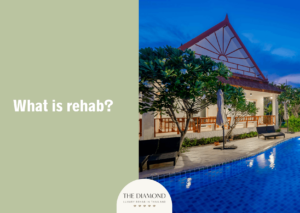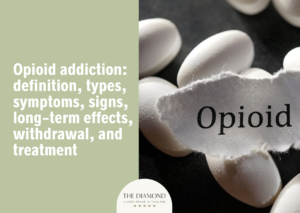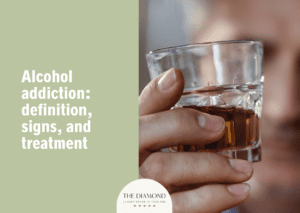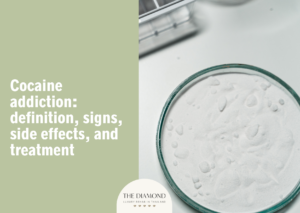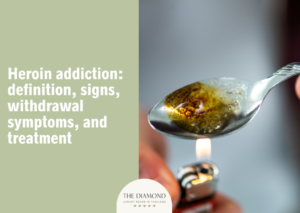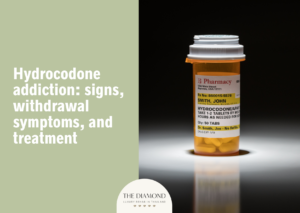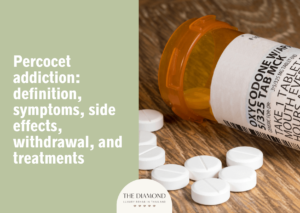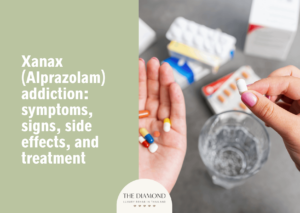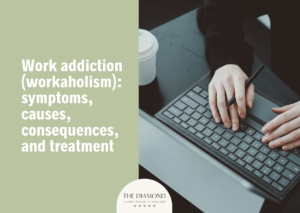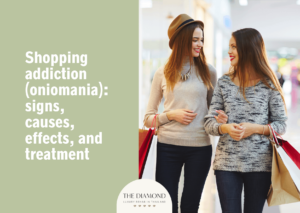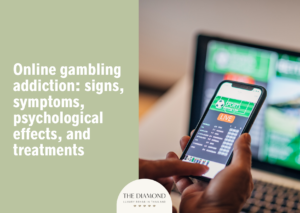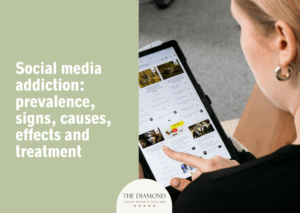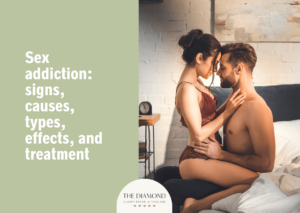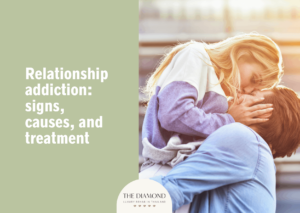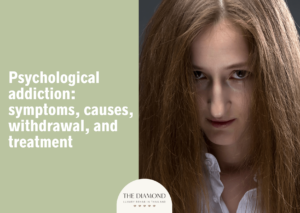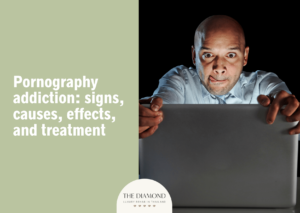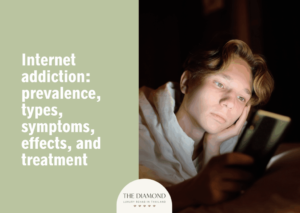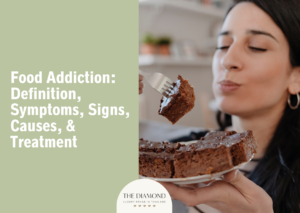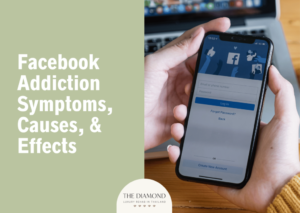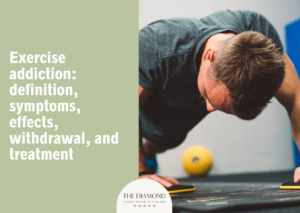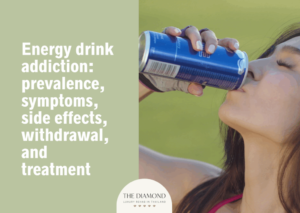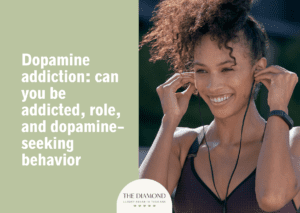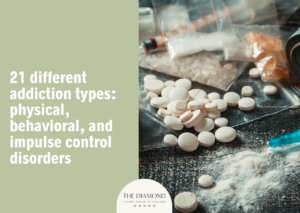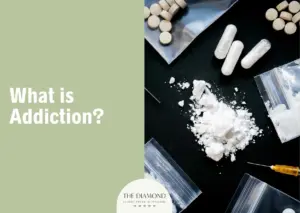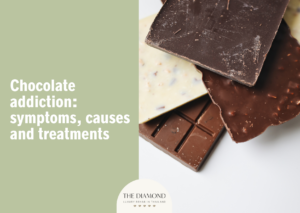Relationship addiction: signs, causes, and treatment

Relationship addiction is defined by an unhealthy preoccupation with maintaining romantic relationships at the cost of one’s own happiness and independence. Affected individuals feel intense distress when single and often engage in harmful behaviors to secure or preserve a relationship.
The signs of relationship addiction include fear of being alone, frequent breakups and makeups, constant need for validation, excusing mistreatment, neglecting self-care for the relationship, struggling to maintain self-control, losing individuality outside the relationship and relying on sex to mend the bond.
The causes of relationship addiction are neurobiological factors, low self-esteem, childhood trauma, co-occurring mental health disorders and social and cultural influences.
Treatment options for relationship addiction include cognitive behavioral therapy (CBT), group therapy, dialectical behavior therapy (DBT) and pharmacological interventions.
What is relationship addiction?
Relationship addiction describes a compulsive drive to pursue or uphold romantic connections regardless of one’s own wellbeing. The condition arises from an intense fear of being alone and emotional instability.
People with an obsessive attachment toward a partner look for acceptance or affection all the time in order to feel validated. A strong loss of control occurs, leading to desperate efforts to keep the relationship intact even when it becomes toxic.
Persons struggling with the problem often fail to recognize emotional harm warning signs and boundaries. The focus on romantic connections takes the place of hobbies, friendships and personal development.
Can you be addicted to a person?
Yes, you can be addicted to a person. The attachment triggers a powerful rush of pleasure resembling the high from drugs or alcohol. Over time, the addict begins to rely on the presence and approval of the person to feel emotionally stable.
Intense attachment forms, leading to dependence on the relationship for happiness or self-worth. The emotional reliance triggers anxiety or despair when separation occurs. The need for reassurance and affection starts to dominate daily thoughts and actions.
The relationship starts to function more as a means of filling an internal void than as a true connection. Such dependence impairs judgment and results in self-destructive or possessive behavior. In order to break free, one must face insecurity, regain confidence and learn to embrace solitude.
What are other names for relationship addiction?
Other names for relationship addiction include love addiction, codependency and emotional dependency. Love addiction is characterized by an obsessive need for romance, causing a person to idealize and put a partner above all else. In relationships where one individual enables harmful behavior, the term codependency is commonly used.
Emotional dependency reflects an intense need for constant reassurance and validation from a spouse, creating imbalance and loss of autonomy. Limerence, a condition of compulsive infatuation characterized by intrusive thoughts, longing and a strong need for reciprocation, is another related concept.
Limerence often overlaps with relationship addiction, as both involve craving emotional intensity and validation from a romantic interest rather than forming balanced, secure attachments. Each term reveals a different facet of the same issue—an unhealthy fixation on romantic bonds causing significant emotional and psychological strain.
What are the signs of relationship addiction?

Signs of relationship addiction are the emotional patterns and behaviors suggesting an individual is excessively reliant on romantic relationships. The signs of relationship addiction are listed below.
- Fear of being alone: A person with relationship addiction experiences intense anxiety at the thought of being single. Solitude feels unbearable, pushing constant efforts to seek companionship. Personal happiness becomes dependent on another’s presence. Findings of a 2022 paper by Girme et al., titled “Coping or Thriving? Reviewing Intrapersonal, Interpersonal, and Societal Factors Associated With Well-Being in Singlehood From a Within-Group Perspective” showed individuals with greater fear or desire for a partner frequently experience diminished well-being, including decreased life satisfaction. Singles experience lower social support compared to coupled individuals, exacerbating loneliness and adversely affecting mental health.
- Frequent breakups and makeups: Turbulent relationships marked by repeated separations and reconciliations are common. Each breakup brings panic, while every reunion brings temporary relief. The pattern becomes addictive, as the person gets hooked on the emotional highs and lows.
- Constant need for validation: The self-worth of a love addict relies entirely on reassurance from a partner. Compliments, attention and approval serve as emotional lifelines, offering temporary relief from insecurity. The absence of affirmation leads to doubt and obsessive worry about being unloved. Confidence fades as personal identity becomes defined through another’s perception.
- Excusing mistreatment: Individuals trapped in relationship addiction tend to rationalize verbal, emotional or even physical mistreatment to preserve the bond. The person believes the partner’s behavior results from stress, love or confusion instead of cruelty. Such a mindset weakens self-worth and sustains a damaging cycle of tolerance and denial. The line between devotion and abuse blurs completely, making escape feel impossible.
- Neglecting self-care for the relationship: Personal wellbeing becomes secondary to maintaining closeness with a partner. Time once spent on rest, nutrition and hobbies is replaced with constant efforts to satisfy emotional needs within the relationship. The neglect slowly drains energy and self-confidence, leaving a sense of emptiness. In extreme cases, physical and mental health deteriorate as self-care feels selfish or unnecessary.
- Struggling to maintain self-control: Intense emotions overpower rational thinking during arguments or separation. Impulsive messages or sudden visits replace thoughtful communication. Each impulsive act reinforces the lack of balance between emotion and reason. A 2021 article by Stavrova et al., called “Low Self-Control: A Hidden Cause of Loneliness?” indicated individuals with poor self-control often experience greater loneliness. Impulsive behavior causes others to view them as unreliable or untrustworthy. Such a perception increases the chance of being excluded in social situations. Exclusion eventually leads to stronger feelings of isolation.
- Losing individuality outside the relationship: Overdependence leads to an identity built entirely around the relationship. Friends, personal interests and ambitions fade, replaced by constant concern for the partner’s moods and needs. The person becomes disconnected from once-valued parts of life, creating emotional isolation. Reclaiming individuality becomes difficult because fulfilment feels tied solely to the relationship’s survival.
- Relying on sex to mend the bond: Sexual intimacy becomes a substitute for genuine communication or emotional resolution. Moments of affection are mistaken for reconciliation, masking deeper issues beneath temporary pleasure. The cycle of conflict followed by physical closeness prevents meaningful growth.
What are the causes of relationship addiction?
Causes of relationship addiction are the fundamental elements and factors leading someone to become unhealthily dependent on intimate relationships. The causes of relationship addiction are listed below.
- Neurobiological factors: Brain chemistry plays a key role in relationship addiction. Imbalances in dopamine and oxytocin create intense pleasure during emotional or physical closeness, reinforcing dependence on affection. The brain begins to crave rewarding sensations in the same way it seeks substances. Attachment eventually becomes a compulsive pursuit of emotional highs instead of genuine intimacy.
- Low self-esteem: Individuals with fragile self-worth rely on romantic partners for validation and security. Love becomes a means to feel valuable or complete, not a mutual connection. Fear of rejection drives excessive efforts to please and maintain closeness. Findings of a 2023 study by Gori et al., titled “Love Addiction, Adult Attachment Patterns and Self-Esteem: Testing for Mediation Using Path Analysis” support earlier research showing anxious attachment styles are connected to different forms of addiction. Individuals with preoccupied or fearful attachment patterns tend to depend heavily on others for emotional stability. Such attachment styles usually involve negative beliefs about personal worth. These self-perceptions lower confidence and lead to unhealthy dependence on partners for validation and security.
- Childhood trauma: Early experiences of neglect, abandonment or inconsistent care disrupt emotional development. Unresolved pain from the past fosters insecurity and fear of losing love. Adults with such histories seek reassurance through intense attachments. The need to avoid emotional abandonment replaces the ability to form healthy bonds.
- Co-occurring mental health disorders: Psychological disorders make individuals more prone to forming dependent attachments. Emotional distress pushes individuals to seek comfort through romantic attention. Relationships then serve as a coping mechanism for psychological discomfort. The reliance on love for emotional stability replaces genuine coping and reinforces an ongoing cycle of dependence.
- Social and cultural influences: Cultural messages glorifying romantic love promote the belief that happiness relies on having a partner. Media portrayals of idealized relationships create unrealistic expectations of constant passion and devotion. Social pressure to find love causes individuals to tolerate imbalance or dysfunction. In a 2024 study by Aquino et al., called “Loving Them Was Red: A Qualitative Analysis on Why Young Adult Women Chose to Stay in a Toxic Relationship,” cultural and family pressures often compelled participants to remain in harmful relationships out of obligation to conform. The paper highlighted how deep-rooted expectations from relatives, religion and society discouraged deviation, with one participant describing intense pressure to meet social standards.
How does dopamine affect relationship addiction?
Dopamine affects relationship addiction by modulating the brain’s reward system. When a person experiences romantic attraction or the excitement of a new relationship, the brain releases dopamine, a chemical tied to pleasure, motivation and reward.
Extreme satisfaction from the surge strengthens attachment and increases the desire for further interaction. Each encounter becomes linked with emotional gratification, making separation feel uncomfortable or distressing.
The brain begins to crave euphoric highs, pushing the individual to seek constant connection or reassurance from a partner. The repeated dopamine spikes mirror patterns seen in substance dependence, where pleasure drives continual engagement despite harm.
How does low self-esteem affect relationship addiction?
Low self-esteem affects relationship addiction by creating a deep need for constant reassurance and approval from a partner. Individuals with fragile confidence rely on external validation to feel valued or secure.
Love becomes a measure of personal worth, and rejection feels like proof of inadequacy. The dependence on another person’s attention reinforces lower self-worth, making independence feel unsafe or undeserved.
As insecurity grows, self-doubt clouds judgment, leading to choices driven by fear rather than emotional clarity. Such individuals tolerate neglect, manipulation or emotional distance just to avoid being alone.
In various cases, affected persons unintentionally sabotage healthy relationships because trust feels unfamiliar. Each failed connection strengthens the belief of being unworthy of love.
How does depression affect relationship addiction?
Depression affects relationship addiction by intensifying the need for affection as a way to escape emotional pain. A depressed person usually seeks closeness to fill an inner sense of emptiness and despair.
Romantic involvement becomes a temporary source of comfort and fulfillment, masking deeper sadness or hopelessness. The urge to connect emotionally grows stronger, as relationships seem to offer relief from loneliness or low mood.Emotional reliance transforms into dependency, making separation feel unbearable. When a partner fails to meet heightened emotional needs, frustration and resentment arise. The relationship then shifts from mutual support to an uneven dynamic driven by fear of abandonment. Depression ultimately hinders real connection and erodes emotional boundaries.
Who is at risk of relationship addiction?
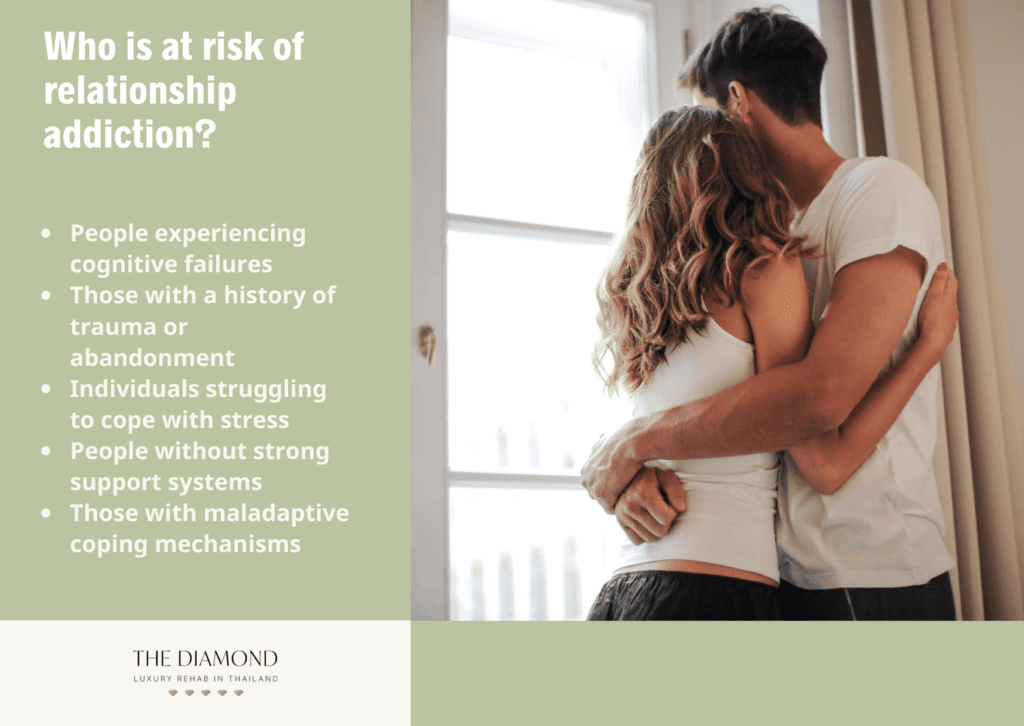
People at risk of relationship addiction are individuals showing patterns or tendencies making vulnerability to unhealthy attachments more likely. Those at risk of relationship addiction are listed below.
- Individuals prone to cognitive lapses: Frequent forgetfulness or difficulty focusing interferes with decision-making in relationships. Affected individuals misinterpret emotional cues and struggle to recognize unhealthy dynamics. According to a 2024 paper by Giacobbe et al., titled “Psychological and cognitive complaints in individuals with love addiction,” individuals with love addiction (LA) experience more frequent cognitive lapses at work and in daily life due to excessive preoccupation with partners. Such absorption in the relationship diverts focus from other responsibilities. As attention narrows, mental energy declines, leading to growing fatigue. Over time, emotional and cognitive strain interferes with overall functioning.
- People shaped by trauma or past abandonment: Early experiences of neglect breed an intense need for reassurance in adulthood. Love begins to feel like protection from old wounds instead of a balanced connection. The fear of being left again fuels overattachment, even in unstable situations.
- Those struggling to handle stress: Constant pressure in daily life encourages escape through romantic attention. Emotional strain clouds the ability to recognize unhealthy dependence, making affection seem like the only source of calm. Gradually, emotional balance collapses as the relationship becomes a coping outlet and not a source of joy.
- People lacking strong social support: Without trusted companions to offer perspective, emotional needs fall entirely on a partner. The absence of social grounding intensifies longing for closeness and approval. Even minor conflicts start feeling catastrophic because stability hinges on one person’s affection. As attachment tightens, independence fades, resulting in emotional exhaustion.
- Individuals with unhealthy coping habits: Escaping inner discomfort through romance masks deeper emotional distress. Partners become substitutes for self-understanding, replacing reflection with temporary comfort. When affection fades, emptiness resurfaces, intensifying the urge to reconnect quickly. Such a loop traps a person in repeating the same relational mistakes under a false sense of healing.
- Male sex: One of the reasons why men face greater risk of developing relationship addiction is due to social norms discouraging emotional openness. Many grow up suppressing vulnerability, relying on romantic partners for intimacy and reassurance. A 2024 study called “Psychological and cognitive complaints in individuals with love addiction” by Giacobbe et al., revealed male gender predicts greater vulnerability to developing love addiction. Men display higher tendencies toward pathological love than women. Studies link insecure attachment patterns to male sex, placing men at elevated risk for unhealthy dependence. Individuals with anxious attachment fear rejection or neglect and seek constant closeness to feel emotionally secure.
Can a relationship addiction be diagnosed?
No, relationship addiction cannot be diagnosed, because it is not officially recognized as a diagnosable mental health disorder in clinical manuals like the DSM-5 (Diagnostic and Statistical Manual of Mental Disorders, Fifth Edition).
Behaviors and emotional patterns linked to relationship addiction are genuine and often deeply distressing, yet the condition lacks official diagnostic recognition. A 2023 study by Maglia et al., titled “Love Addiction – Current Diagnostic and Therapeutic Paradigms in Clinical Psychology” identified the absence of validated tools and standardized criteria as a major barrier to accurate diagnosis.
Several assessment scales, such as the Love Addiction Inventory (LAI), have been introduced, but no universally accepted framework exists for clinical evaluation.
What are the relationship addiction treatment options?
Relationship addiction treatment options refer to the various therapy methods aimed at assisting clients in overcoming detrimental attachment patterns and restoring emotional balance. The most common relationship addiction treatment options are listed below.
- Cognitive behavioral therapy (CBT): Through CBT, individuals learn to challenge irrational beliefs, such as the need for constant validation, and develop healthier ways of thinking and behaving in relationships. Furthermore, CBT emphasizes the need to establish self-esteem and foster independence in order to escape the vicious cycle of relationship addiction.
- Group therapy: Group therapy provides a supportive environment where participants share experiences and receive feedback from others facing similar struggles. Hearing other viewpoints lessens feelings of loneliness and enables people to identify recurrent relationship patterns. Due to the accountability and support the group environment provides, emotional development is easier to achieve. As per a publication by Maglia et al., titled “Love Addiction – Current Diagnostic and Therapeutic Paradigms in Clinical Psychology” published in 2023, group therapy has proven to be an effective treatment option, with research showing most group settings succeed because the interactions engage brain systems related to reward and attachment.
- Dialectical behavior therapy (DBT): DBT helps people control intense emotions, lessen impulsive conduct and enhance interpersonal effectiveness by fusing cognitive behavioral therapy with mindfulness practices. Through DBT, people learn how to create boundaries in relationships, communicate in a healthy way and tolerate distress. One’s inclination to grow emotionally reliant on a partner is lessened by using DBT, assisting in creating more stable, harmonious partnerships.
- Pharmacological interventions: Relationship addiction does not currently have a recognized pharmacological treatment, although given the condition’s similarity to other psychological disorders, a few drug classes are potentially relevant. For instance, in certain cases, antidepressants and mood stabilizers prove helpful in addressing symptoms of obsession and impulsivity, according to a 2018 review article by M. Sanches and V.P. John, titled “Treatment of Love Addiction: Current Status and Perspectives.”
Is relationship addiction treated in rehab?
Yes, relationship addiction is treated in rehab. Specialized programs or therapies that concentrate on behavioral addictions, including relationship addiction, are provided by a variety of rehab centers.
Patients in rehab receive systematic care aiming to identify unhealthy connection patterns and identify the emotional needs underlying dependency. Relationship addicts regain self-esteem and adopt more healthy attachment styles with the support of trained therapists leading through extensive counseling.
Numerous facilities integrate cognitive and dialectical behavior therapies to address emotional instability and impulsive decisions in relationships.
Are there support groups for relationship addiction?
Yes, there are support groups for relationship addiction, though not all are explicitly labeled as such. Many belong to broader categories like codependency or love addiction, offering guidance and understanding to individuals dealing with unhealthy relationship patterns.
Two groups that provide a secure environment for individuals to discuss their challenges, learn from the experiences of others, and work on altering their relationship behaviors are Co-dependents Anonymous (CoDA) and Sex, Love, and Addicts Anonymous (SLAA). Such groups follow a 12-step framework focused on recovery, emotional growth and personal transformation.
Addiction support groups encourage accountability and help participants stick to long-term change. Individuals who consistently participate in supportive recovery communities develop resilience and emotional independence.
How to stop relationship addiction?
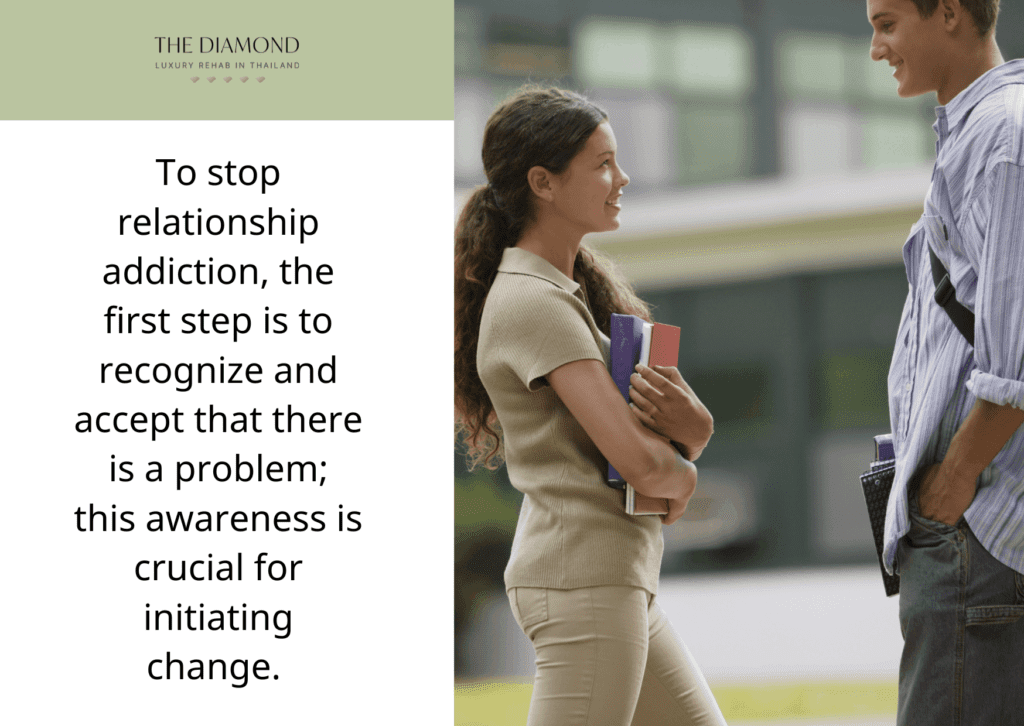
To stop relationship addiction, the first step is to acknowledge a problem exists, as awareness sets the stage for meaningful change. After that, get expert assistance to investigate underlying issues including low self-esteem, traumatic experiences or fear or being alone.
Engage in cognitive behavioral therapy (CBT) or dialectical behavior therapy (DBT) to challenge destructive thoughts and develop healthier coping patterns. Then, in order to preserve emotional balance, start building a solid support network outside of romantic relationships.
Afterward, concentrate on self-directed pursuits fostering identity development and personal growth apart from relationships. To create a more satisfying, well-rounded life, engage in activities, set personal objectives and nurture friendships.
Additionally, to maintain emotional awareness and prevent rash actions during conflict, engage in mindfulness exercises. In order to preserve emotional space and guarantee respect in relationships, establish clear limits. Finally, think about joining a support group to get advice and motivation from others on the same stage of recovery.

